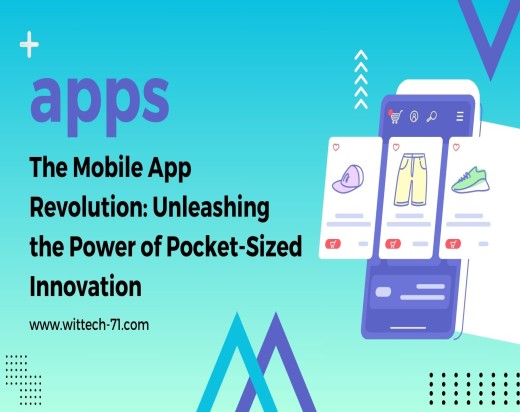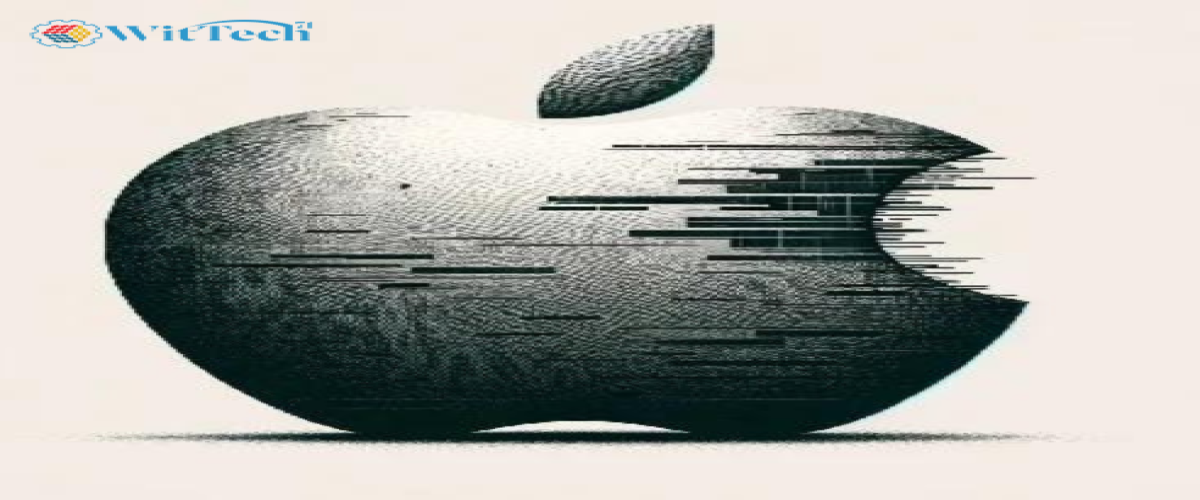The Mobile App Revolution: Unleashing the Power of Pocket-Sized Innovation
In the age of digital transformation, mobile apps have emerged as a driving force behind the way we live, work, and play. These pocket-sized powerhouses have revolutionized the world, connecting us to information, services, and entertainment at our fingertips. In this comprehensive article, we'll explore the world of mobile apps, their evolution, their impact on various industries, and what the future holds for this dynamic technology.
The Mobile App Ecosystem
A Brief History
Mobile apps have come a long way since their inception. In the early 2000s, mobile phones were primarily used for calls and text messages. The introduction of smartphones and mobile app stores changed everything. Apple's App Store, launched in 2008, was a game-changer, followed by the Android Market (now Google Play). These platforms allowed developers to create and distribute apps to a global audience.
Diversity of Mobile Apps
Today, mobile apps span a wide spectrum, offering a multitude of functionalities, including:
- Social Networking Apps: Think Facebook, Instagram, and Twitter.
- E-commerce and Shopping Apps: From Amazon to eBay, mobile shopping has become a norm.
- Messaging and Communication Apps: WhatsApp, Telegram, and Slack connect us with the world.
- Entertainment Apps: Netflix, Spotify, and gaming apps bring joy and recreation.
- Productivity and Utility Apps: From note-taking to navigation, apps like Evernote and Google Maps make life easier.
- Health and Fitness Apps: Monitoring health, tracking workouts, and even telemedicine apps have made wellness accessible.
- Travel Apps: Booking flights, finding hotels, and exploring new places have been streamlined.
- Finance and Banking Apps: Managing finances and making transactions is a breeze with apps like PayPal and Mint.
- Educational Apps: Learning and knowledge acquisition through apps like Duolingo and Khan Academy.
- Business and Enterprise Apps: Streamlining business processes, improving productivity, and collaboration with apps like Microsoft Office and Slack.
Operating Systems
The two primary operating systems, iOS (Apple) and Android (Google), have dominated the mobile app market. These platforms have distinct user bases and development requirements, leading to the creation of apps tailored for each ecosystem.
Impact on Our Lives
Mobile apps have become an integral part of our daily existence, impacting various aspects of life:
Communication and Social Connection
The rise of social media and messaging apps has transformed the way we interact. We can connect with friends, family, and colleagues worldwide in real time, sharing our lives through text, images, and videos.
Commerce and Shopping
E-commerce apps have reshaped our shopping habits. We can now browse, purchase, and receive products without leaving our homes. The convenience of mobile payments has further streamlined the shopping experience.
Entertainment and Leisure
From streaming our favorite movies and TV shows to enjoying immersive gaming experiences, entertainment apps provide limitless options for leisure.
Productivity and Efficiency
Productivity apps have made us more organized and efficient. We can manage our calendars, create to-do lists, and access documents and files on the go.
Health and Well-being
Health and fitness apps have empowered us to take control of our well-being. We can track our physical activity, monitor our diet, and even consult with healthcare professionals using telemedicine apps.
Education and Learning
Educational apps have democratized learning, making knowledge accessible to people of all ages. Whether you want to learn a new language or acquire a new skill, there's likely an app for it.
Travel and Exploration
Travel apps have made it easier to plan trips, find accommodations, and explore new destinations. Additionally, navigation apps have eliminated the stress of getting lost.
Finance and Banking
Managing finances has never been easier. Banking apps allow us to check balances, transfer funds, pay bills, and invest in the stock market, all from our mobile devices.
The App Economy
The mobile app industry has become a robust and profitable ecosystem. It's not just app developers who benefit; the app economy extends to various stakeholders:
Developers
App developers have found a thriving marketplace to showcase their talents. From indie developers to large corporations, the app market offers opportunities for innovation and financial success.
App Stores
Apple's App Store, Google Play, and other app stores are essential gatekeepers of the app ecosystem. They provide platforms for developers to publish and distribute their apps, earning a percentage of app sales and in-app purchases.
Advertisers
Mobile apps offer a platform for advertisers to reach their target audience. In-app advertisements have become a significant source of revenue for many apps, allowing them to offer free versions to users.
Consumers
Mobile apps have redefined the way consumers access services and products. The convenience, accessibility, and often free availability of apps make them an attractive option for individuals.
Device Manufacturers
The success of mobile apps has boosted the sales of smartphones and tablets. Device manufacturers profit from the growing demand for devices capable of running these apps.
The Challenges of App Development
While the mobile app industry is thriving, it comes with its share of challenges for developers and businesses:
Market Saturation
With millions of apps available, competition is fierce. It can be challenging for new apps to gain visibility and attract users.
Fragmentation
The Android ecosystem is fragmented, with a wide variety of devices and operating system versions. This requires developers to ensure compatibility with multiple configurations.
App Monetization
Finding the right monetization strategy can be difficult. Whether through app sales, in-app purchases, subscriptions, or ads, choosing the right revenue model is critical.
User Retention
Keeping users engaged and retaining them over time is a persistent challenge. Frequent updates, new features, and a great user experience are vital.
Security and Privacy
Protecting user data and ensuring app security is essential. Violations of privacy or data breaches can have severe consequences.
Regulatory Compliance
Apps must adhere to various regulations, including those related to privacy, accessibility, and content standards. Staying compliant can be complex.
The Future of Mobile Apps
The mobile app industry shows no signs of slowing down. Here are some key trends and developments to watch for in the future:
Augmented Reality (AR) and Virtual Reality (VR)
AR and VR apps are poised to redefine how we interact with the digital and physical worlds. These technologies have applications in gaming, education, healthcare, and more.
5G Connectivity
The rollout of 5G networks will result in faster download and upload speeds. This will enable more immersive app experiences, particularly for streaming, gaming, and augmented reality.
Artificial Intelligence (AI)
AI will continue to enhance mobile apps with features like voice recognition, predictive text, and personalized recommendations.
IoT Integration
Apps will increasingly interact with the Internet of Things (IoT) devices, allowing users to control their smart homes, cars, and appliances via mobile apps.
Blockchain Technology
Blockchain technology will impact mobile apps by enhancing security, enabling decentralized apps, and providing new possibilities for financial transactions.
Health and Fitness Apps
The trend of health and fitness apps will continue, with an emphasis on personalized health tracking, telemedicine, and mental health support.
Sustainability
Apps will focus on sustainability and environmental impact. Expect to see apps that help users reduce their carbon footprint and make sustainable choices.
Conclusion
The mobile app revolution has reshaped the way we live, work, and play. With diverse functionalities and a constant stream of innovations, mobile apps have become indispensable tools in our daily lives. As the app ecosystem continues to grow, adapt, and evolve, we can expect even more remarkable developments in the years to come. Mobile apps are more than just lines of code; they represent the limitless possibilities of technology and human ingenuity.





Comments